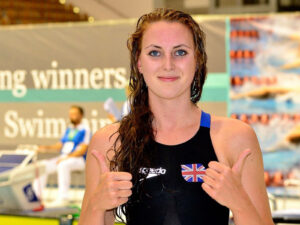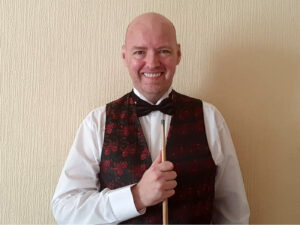Multi-sport in São Paulo to football in Qatar
April has arrived and warmer weather is certainly on its way, as well as a possible Easter egg or two.
A new month also means another edition of the Spautism Global Spectrum, looking back at some of last month’s feel-good stories from the wonderful world of autism and sport.
Starting a legacy
The 2022 FIFA World Cup is due to take place in 20 months’ time and organisers plan on making the tournament more inclusive than ever, aiming to build sensory rooms in stadiums as well as catering for physical-disability access. At grassroots level, Generation Amazing – an initiative set up alongside Qatar’s World Cup bid 11 years ago – continues to provide sports participation opportunities for neurodiverse people, and has received support from global names such as former Australia football captain Tim Cahill.
The Copper Hammer
Caiden Hooks has not let anything stand in his way. He is a student at Olentangy Berlin High School, Ohio, USA, and a keen wrestler despite being blind, having had his eyes removed due to cancer when he was young. The 17-year-old wrestles opponents by touch and has become a feared competitor, winning 25 out of 32 matches this season. Caiden also has autism and can sometimes get flustered when socialising, but he has grown through sport into a confident person, living up to his wrestling alter ego: The Copper Hammer
Please click here for the full story.
Breaking barriers in Brazil
It was confirmed in March that the first Virtus Americas Regional Games will take place in September 2022 at the world-class Brazilian Paralympic Training Center in São Paulo, Brazil. Subject to final confirmation, the competition will see athletes from 16 nations compete in six different sports including athletics, as well as demonstration events. Athletes will fall under three eligibility groups, one of which is specifically for people on the autism spectrum who do not meet the IQ criteria to compete in the intellectual disability categories.
Take the dive
Founded by Lyndi Leggett, the Scuba Gym based in New South Wales, Australia, uses scuba diving to rehabilitate disabled people. With the support of scuba instructors, the anti-gravity nature of water makes it a great place for people who struggle with mobility to learn how to walk, run, and swim again. The Scuba Gym is also running programmes for people on the autistic spectrum with lots of fun activities to help develop core skills and improve concentration and confidence.
Please click here for the full story.
Little by little
Bob Shanks is a superfan of ice hockey team Vancouver Canucks and has combined his passion for sport with his innate desire to help people by raising over $250,000 for the Canucks Autism Network since 2012. Despite most of the donations being small, from between $5 and $20, they have added up to an eye-watering total. Bob himself has autism and is driven by seeing other people on the spectrum feeling happy.


